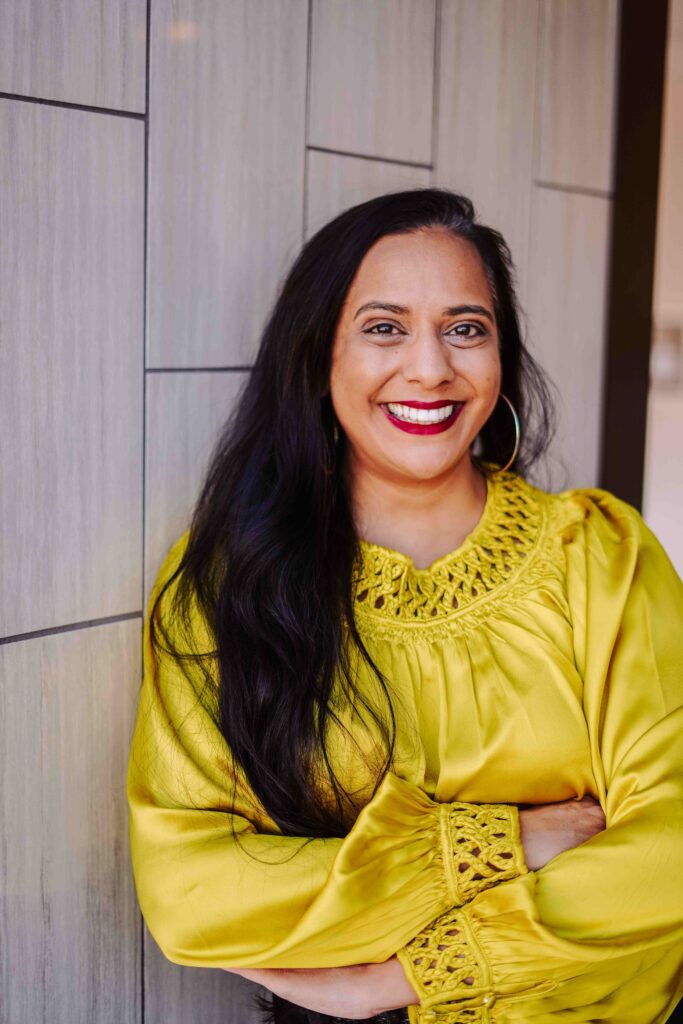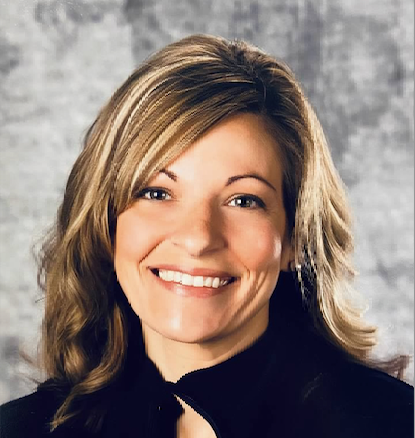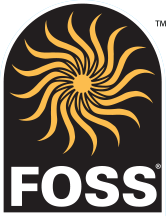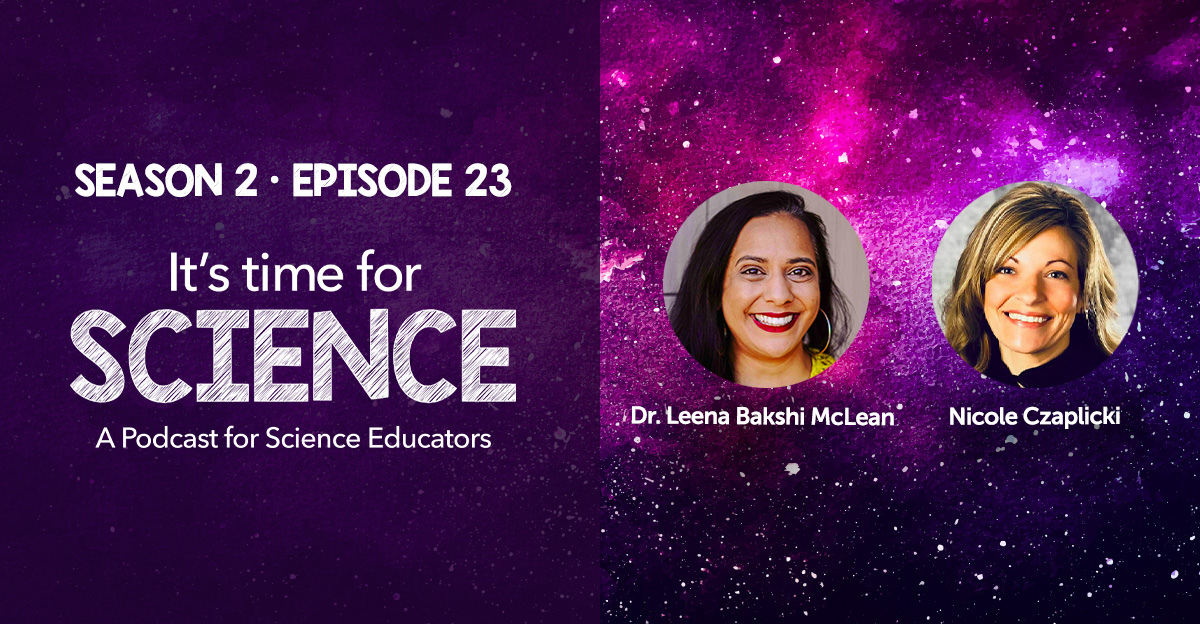It’s Time for Science, and it’s time to discuss providing access to STEM for all students and also chat about technology integration! Tom talks to Dr. Leena Bakshi McLean (founder of STEM4Real and author of the book STEM for All: How to Connect, Create, and Cultivate STEM Education for All Learners”) and Nicole Czaplicki, a principal in the Upper Dauphin Area School District.

Dr. Leena Bakshi McLean founded STEM4Real, a nonprofit professional learning organization that integrates science, mathematics, and STEM content with justice-centered teaching and leadership principles. She has served as an adjunct professor of teaching methods and Universal Design for Learning at UC Berkeley and Claremont Graduate University.
Dr. McLean is a former district and county-level administrator and a mathematics, science, and health teacher. She serves as the Director of Multicultural Education for the National Science Teaching Association (NSTA) and previously served on the CASE Board of Directors. A sought-after international speaker, global consultant, and trusted advisor to schools, districts, charter networks, and nonprofit organizations, Dr. McLean leads research at the intersection of equity and STEM education. Her work focuses on creating access and opportunity for every student, regardless of race, ethnicity, religion, or socioeconomic status.
Dr. McLean is the author of the children’s book “There’s Something in the Water” and her latest book, “STEM for All: How to Connect, Create, and Cultivate STEM Education for All Learners.” Each year, she convenes education leaders from across the globe at the STEM for ALL Leadership Symposium, a powerful gathering dedicated to advancing equity, access, and opportunity in STEM education for all.
Tom talks with Dr. McLean about the importance and interdisciplinary nature of stem; looking at art and history through a STEM lens; why it’s essential for students from all backgrounds to see themselves in STEM and industry; looking at the gaps for where we are loosing different students as not a way to divide or pit us against each other, but questions we can ask so we can have some crucial conversations about what can we do to meet the needs of all students. They discuss teaching students to be real world change makers; Dr. McLean’s experiences as a woman of color in STEM; what happens when students fail and how to help them learn from failure; the importance of all students seeing themselves in books, in STEM; how social media can fit in to online education; the power of combining pedagogy and leadership and being able to put both into practice together; the importance of connecting with administrators, teachers, and community members; and how to connect experiences for students, making experiences local and bringing excitement to STEM!
Here are links to some of the resources Dr. McLean mentioned:
STEM4Real Homepage: www.stem4real.org
Children’s Book: www.stem4real.org/book
STEM for ALL Book: www.stemforallbook.com
STEM for ALL Leadership Symposium: www.stem4real.org/symposium
Nicole Czaplicki taught health and physical education for 21 years at Halifax Area School District. In March 2022, she joined Upper Dauphin Area School District and spent two years as a secondary instructional coach before becoming an elementary principal in February 2024. She has two master’s degrees: one in Health Education and one in Educational Technology.

Tom and Ms. Czaplicki discuss her background and the point when she was invited to help train teachers and introduced to FOSS, being asked to help with the transition to new state standards using FOSS; her transition to becoming a principal; the importance of hands-on learning and STEM; how providing more pathways to learning supports learning; the importance of technology integration; her use of anchor phenomenon videos to start each FOSS investigation; the ease of having a technology piece (video) to start off a FOSS investigation and having it as a reference that can be easily revisited; how online assessments make it easier on students and teachers; the use of online activities when hands-on isn’t feasible–including some of the ways technology is integrated into FOSS Pathways. They discuss the way her district successfully brought in new FOSS Pathways units as a three year process; bringing in professional learning as a part of the process; how critical professional learning is for leaders and administrators, along with having an understanding of the pedagogy and theory behind a curriculum; and the importance of instructional learners to be trained to facilitate their teachers through the process. Ms. Czaplicki also discusses how when students are working in hands-on activities, she saw no behavior issues at all in the classroom; and closes by discussing her district’s impressive state test scores, which are attributed to using FOSS; witnessing an increase in test scores in the first year they introduced a module into fourth grade.
It’s Time for Science! To get in touch with us, whether to offer some feedback, ideas for future episodes or reviews, or just to say hi, send us a message at itstimeforscience@schoolspecialty.com. We’d love to hear from you!
Look for School Specialty and FOSS on X and Facebook. It’s Time for Science is produced by School Specialty® and the Full Option Science System™ (FOSS®) at the Lawrence Hall of Science, University of California, Berkeley.
Listen Where You Find Your Favorite Podcasts


